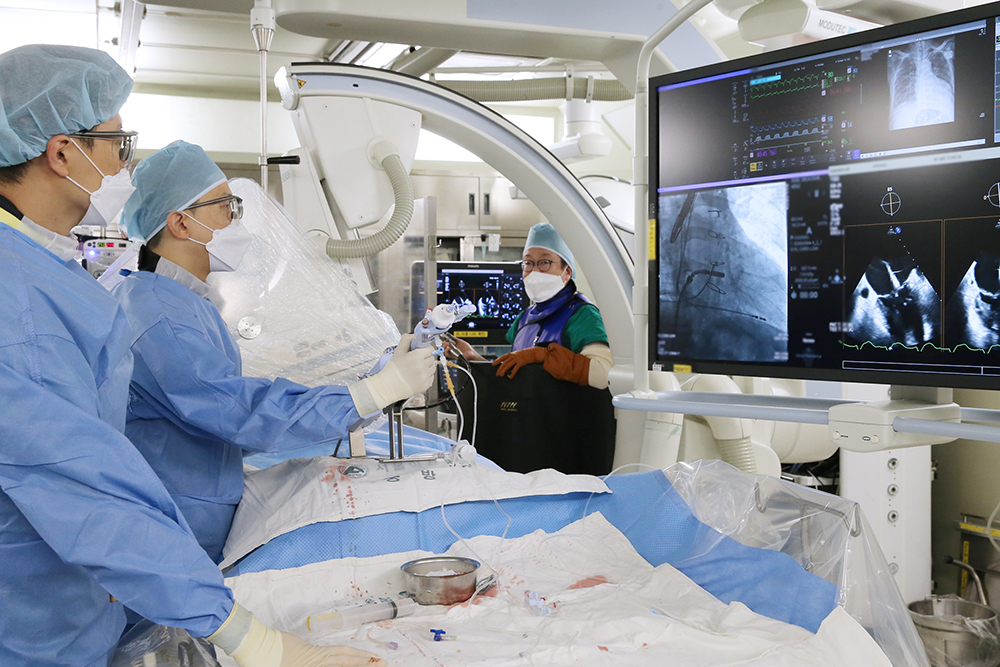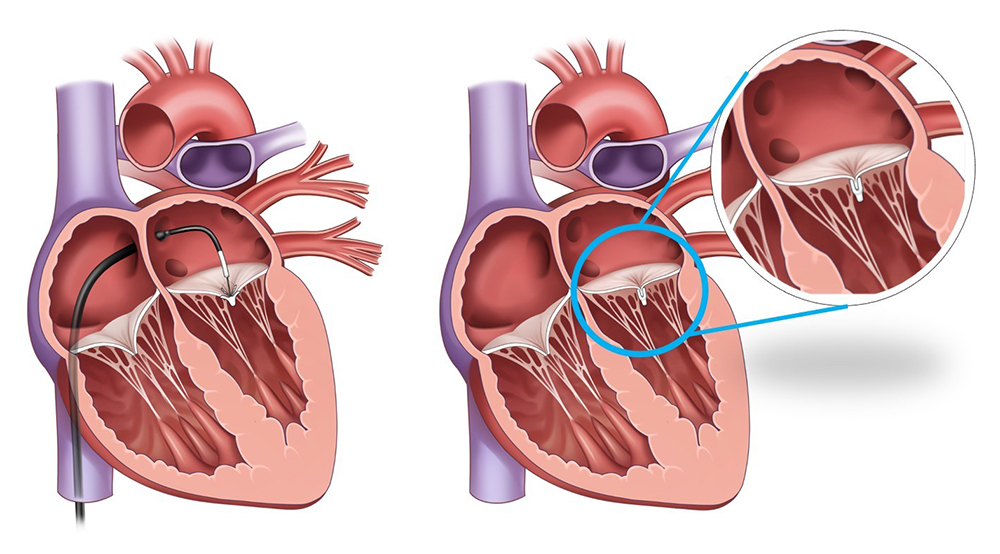-
- Global AMC MENU
- NEWS
- HEALTH
- PEOPLE
- Introduction
 ▲ Professor Dae-Hee Kim(Right) and Professor Do-Yoon Kang(Left) are performing the 100th MitraClip procedure
▲ Professor Dae-Hee Kim(Right) and Professor Do-Yoon Kang(Left) are performing the 100th MitraClip procedure
Mitral valve insufficiency is a condition characterized by the improper closure of the mitral valve, resulting in the retrograde flow of blood within the heart. Traditional treatment methods necessitated open-heart surgery, imposing a significant surgical burden, especially on elderly and high-risk patients. Since 2020, Professor Dae-Hee Kim and Professor Do-Yoon Kang of the Division of Cardiology at Asan Medical Center have actively employed the 'MitraClip' procedure as an alternative to conventional open-heart surgery. Notably, the team recently marked a milestone, completing the first 100 MitraClip procedures in Korea.
The MitraClip procedure involves skillfully grasping the space between the two mitral valve flaps, also known as leaflets, in a clip-like fashion to eliminate the gap created during the valve's opening and closing cycles. This technique effectively mitigates blood backflow. A slender catheter is introduced through the femoral vein and navigated to the interior of the heart. Subsequently, the precise positioning of the clip and the anatomical structure of the mitral valve are real-time confirmed using 3D ultrasound. The clip is then strategically installed to close the gap between the leaflets.
 ▲ The MitraClip Procedure
▲ The MitraClip Procedure
The average age of patients undergoing the MitraClip procedure at Asan Medical Center is 78 years old. Among them, two out of five patients presented with secondary mitral valve insufficiency resulting from causes such as myocardial infarction or heart failure. One out of every two patients exhibited atrial fibrillation, while 60% had hypertension, 20% had diabetes, and 17% had a history of myocardial infarction. Remarkably, approximately 30% of the patients were classified as high-risk due to prior heart surgeries or procedures. Despite this, the MitraClip procedure demonstrated an impressive 97% success rate and a 99% one-month post-procedure survival rate.












